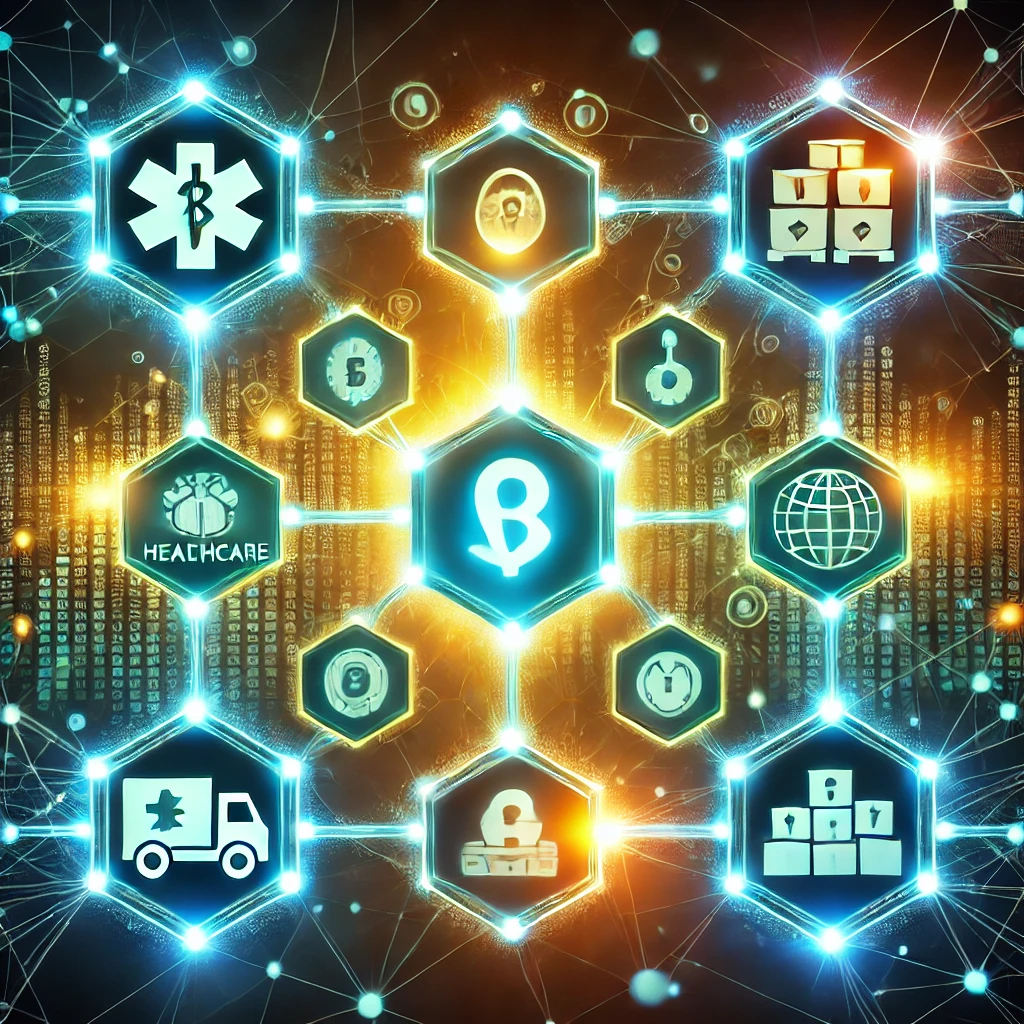Blockchain technology, often associated with cryptocurrency, has proven to be a groundbreaking innovation that extends far beyond digital currencies. This decentralized ledger system is transforming various industries by offering secure, transparent, and efficient solutions. From supply chain management to healthcare and beyond, blockchain is reshaping how businesses and governments operate. This article delves into the diverse use cases of blockchain across industries, highlighting its potential and practical applications.
Understanding Blockchain Technology
At its core, blockchain technology is a decentralized ledger that records transactions across multiple computers. Its unique features include:
- Decentralized Ledger: A system where data is stored across a network of computers, ensuring no single point of failure.
- Immutable Records: Transactions, once recorded, cannot be altered, ensuring data integrity.
- Smart Contracts: Self-executing contracts with terms directly written into code.
- Peer-to-Peer Networks: Direct interactions between parties without intermediaries.
- Secure Data Exchange: Encryption ensures data security and privacy.
These features make blockchain an ideal solution for industries requiring transparency, security, and efficiency.
Use Cases in Supply Chain Management
Blockchain technology is revolutionizing supply chain management by enabling real-time tracking and transparency. Key applications include:
-
- Provenance Tracking: Ensuring the authenticity of goods by tracing their origin.
- Inventory Management: Real-time updates on stock levels, reducing wastage.
- Logistics Optimization: Streamlining shipping and delivery processes.
- Counterfeit Prevention: Verifying product authenticity to combat fraud.
Companies like IBM and Maersk have developed blockchain-based platforms like TradeLens, which enhances supply chain efficiency through transparent data sharing.
Blockchain simplifies trade finance by automating processes and reducing paperwork. Smart contracts ensure seamless transactions between buyers and sellers.
Transforming Healthcare with Blockchain
Healthcare data management is a critical area where blockchain shines. Its applications include:
- Medical Records Security: Protecting sensitive patient information from breaches.
- Decentralized Patient Records: Allowing patients to control access to their health data.
- Interoperable Health Systems: Facilitating seamless data exchange between healthcare providers.
Blockchain ensures the authenticity of pharmaceuticals by tracking their journey from manufacturers to consumers, preventing counterfeit drugs from entering the market.
By maintaining immutable records, blockchain enhances the credibility of clinical trials, ensuring data accuracy and preventing tampering.
Blockchain’s secure data exchange minimizes fraudulent claims and billing discrepancies, saving billions in healthcare costs.
Applications in Financial Services
Blockchain technology facilitates fast, secure, and cost-effective digital payments. Its decentralized nature eliminates intermediaries, reducing transaction fees and delays.
Blockchain’s immutable ledger enhances fraud detection by providing transparent transaction histories. It also simplifies identity verification processes, improving security.
Real Estate Innovations
Blockchain streamlines property title management by providing a transparent and tamper-proof record of ownership, reducing disputes.
By tokenizing properties, blockchain enables fractional ownership, making real estate investment accessible to a broader audience.
Smart contracts automate property transactions, reducing paperwork and ensuring compliance with legal terms.
Energy Sector Applications
Blockchain ensures transparency in renewable energy tracking, enabling efficient tracking of green energy credits.
Decentralized platforms allow individuals to trade surplus energy directly with others, promoting sustainable energy usage.
Blockchain provides an accurate record of carbon credit tracking, encouraging environmental responsibility.
Retail Transformation
Blockchain simplifies loyalty programs by providing a transparent and unified system for tracking rewards, reducing fraud.
By verifying transactions and ensuring product authenticity, blockchain enhances trust in online shopping.
Consumers can trace the origin and journey of products, fostering trust and ethical consumption.
Government and Public Sector Use Cases
Blockchain enables transparent and efficient governance by digitizing processes such as tax collection and public record management.
Immutable records ensure accurate and tamper-proof land ownership data, reducing disputes and corruption.
Blockchain ensures secure and transparent voting processes, preventing fraud and enhancing trust in elections.
Blockchain Beyond Cryptocurrency
While blockchain’s origins lie in cryptocurrency, its applications extend far beyond financial transactions. Industries worldwide are leveraging its potential for:
- Non-Financial Blockchain Uses: Applications in healthcare, supply chain, energy, and more.
- Blockchain Innovations: Continuous advancements, such as integrating AI and IoT.
- Blockchain Diversification: Expanding use cases across sectors, demonstrating its versatility.
Conclusion
Blockchain technology is revolutionizing industries by providing secure, transparent, and efficient solutions. From supply chain management to healthcare, real estate, and beyond, its potential is limitless. As businesses and governments continue to adopt blockchain, its transformative impact will only grow, reshaping how we interact, transact, and innovate in the digital age.













Leave a Reply